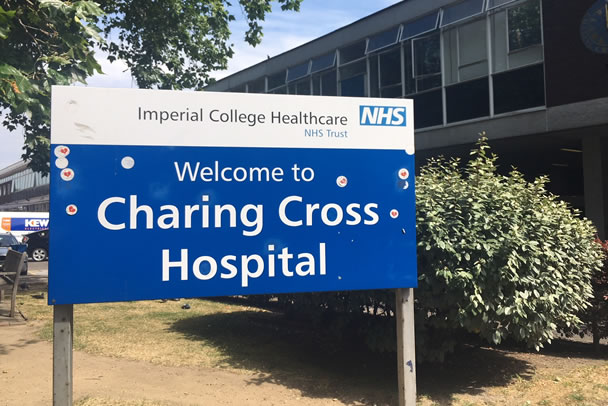Nearly a Third of Covid-19 Patients Admitted to Local Hospitals Died
400 fatalities at Charing Cross, St Mary's and Hammersmith hospitals

Nearly one-third of all coronavirus patients who were admitted to Charing Cross, St Mary’s and Hammersmith hospitals have died, a report shows.
Imperial College Healthcare NHS Trust, which runs the three West London hospitals, stated that by May 14 just over 1,300 patients with COVID-19 had been treated at the three sites.
Of those, 700 patients fully recovered and were discharged home or to a care home, the Trust said.
Tragically, 400 of the 1,300 patients (31 per cent) lost their lives.
Of the total, 500 patients were put on a ventilator in intensive care, after the hospitals were able to “more than double” their intensive care capacity.
However, only one COVID-related fatality has been reported at the Trust in the last seven days.
Reflecting on the numbers, chief executive of the Trust, Professor Tim Orchard, wrote: “We were able to achieve so much, so quickly, thanks to the huge commitment and expertise of all of our staff.
“I am incredibly grateful to everyone but especially to our amazing staff who continue to go well beyond what might be expected of them, even when so many have been personally affected.”
He also paid tribute to four members of staff who died after contracting the virus: Professor Mohammed Sami Shousha, a renowned breast cancer researcher who was British-Egyptian; Donald Suelto, a Hammersmith Hospital nurse from the Philippines; Melujean Ballesteros, a St Mary’s Hospital nurse from the Philippines; and Jermaine Wright, a Hammersmith Hospital pharmacy technician.
“They have lost family, friends and neighbours – four of our own people have died since the pandemic began. It’s really important that we continue to remember and recognise them,” Professor Orchard said.
He also said hospital chiefs are “concerned” about the “disproportionate impact” that COVID is having on minority-ethnic groups.
Professor Orchard, also a medical advisor for the charity Crohn’s and Colitis UK, explained how the hospitals are now moving into a post “surge” stage in dealing with the pandemic.
He said: “We passed the peak of infections in London in mid-April and we are now stepping down much of our ‘surge’ intensive care capacity, though we will be maintaining additional capacity longer term…
“We are working through the implications for patient waiting times and experience and how we best resume planned care and other elements of our overall organisational work given on-going risks from coronavirus and the likelihood of further peaks in infections in the months ahead.
“We are also analysing some of the unintended consequences of COVID-19 on wider health and care, including a decline in patients attending our A&Es, stroke unit and heart attack centres for care unrelated to COVID-19.”
Owen Sheppard – Local Democracy Reporter
May 21, 2020